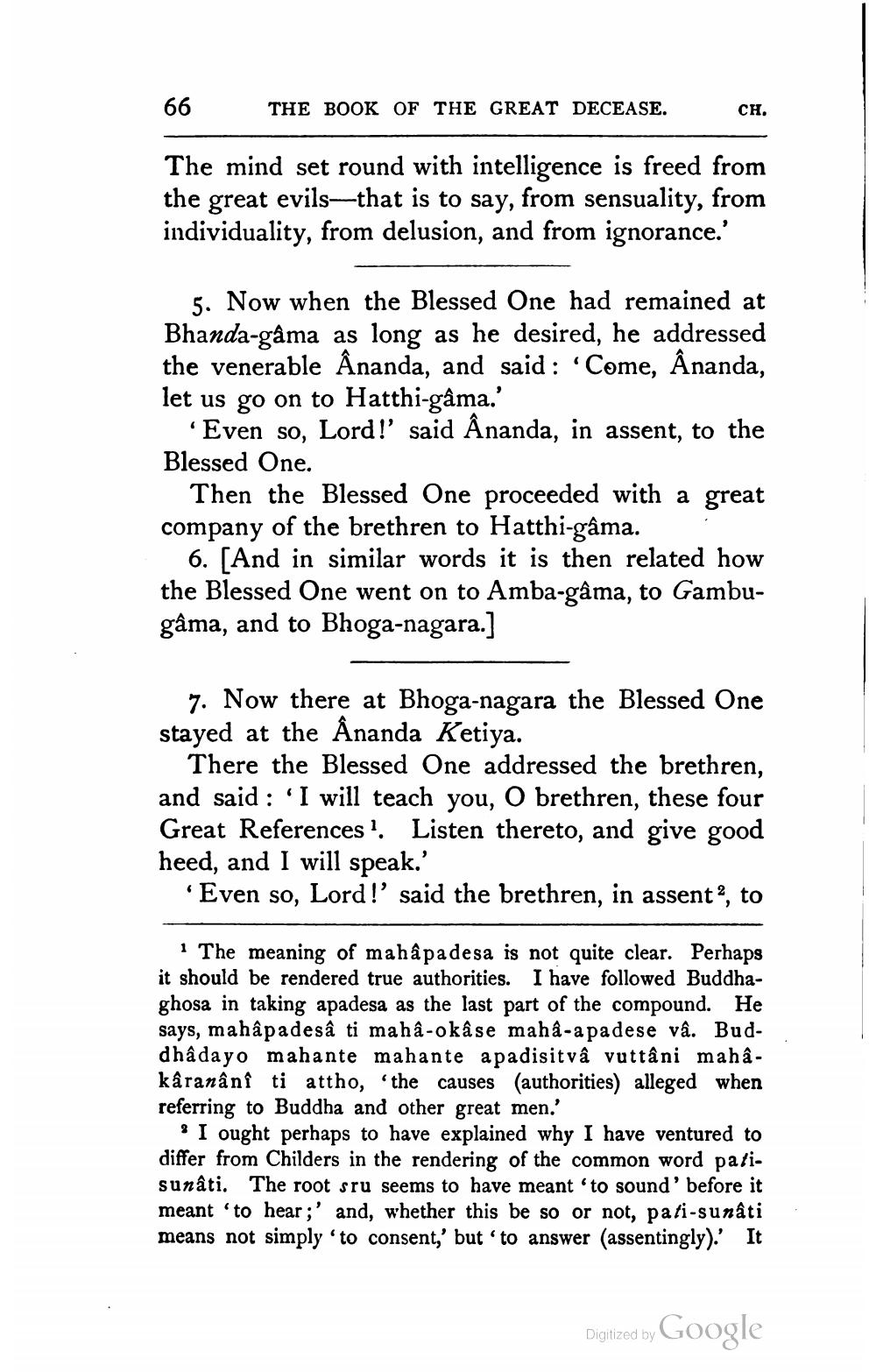________________
66
THE BOOK OF THE GREAT DECEASE.
CH.
The mind set round with intelligence is freed from the great evils--that is to say, from sensuality, from individuality, from delusion, and from ignorance.'
5. Now when the Blessed One had remained at Bhanda-gama as long as he desired, he addressed the venerable Ânanda, and said : 'Come, Ananda, let us go on to Hatthi-gâma.'
'Even so, Lord!' said Ânanda, in assent, to the Blessed One.
Then the Blessed One proceeded with a great company of the brethren to Hatthi-gâma.
6. [And in similar words it is then related how the Blessed One went on to Amba-gâma, to Gambugâma, and to Bhoga-nagara.]
7. Now there at Bhoga-nagara the Blessed One stayed at the Ananda Ketiya.
There the Blessed One addressed the brethren, and said: 'I will teach you, O brethren, these four Great References ?. Listen thereto, and give good heed, and I will speak.'
Even so, Lord!' said the brethren, in assent?, to
The meaning of mahậpadesa is not quite clear. Perhaps it should be rendered true authorities. I have followed Buddhaghosa in taking apadesa as the last part of the compound. He says, mahâpadesâ ti mahâ-okâse maha-apadese vâ. Buddhâdayo mahante mahante apadisitvâ vuttâni mahakâranânî ti attho, the causes (authorities) alleged when referring to Buddha and other great men.'
' I ought perhaps to have explained why I have ventured to differ from Childers in the rendering of the common word pati. sunâti. The root sru seems to have meant to sound' before it meant 'to hear;' and, whether this be so or not, pati-sunâti means not simply to consent,' but 'to answer (assentingly).' It
Digitized by Google




